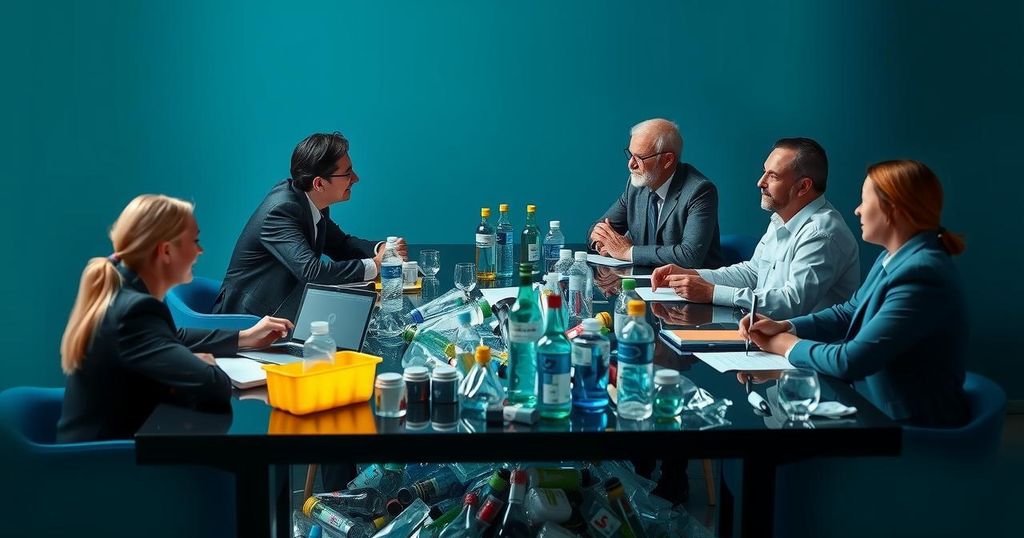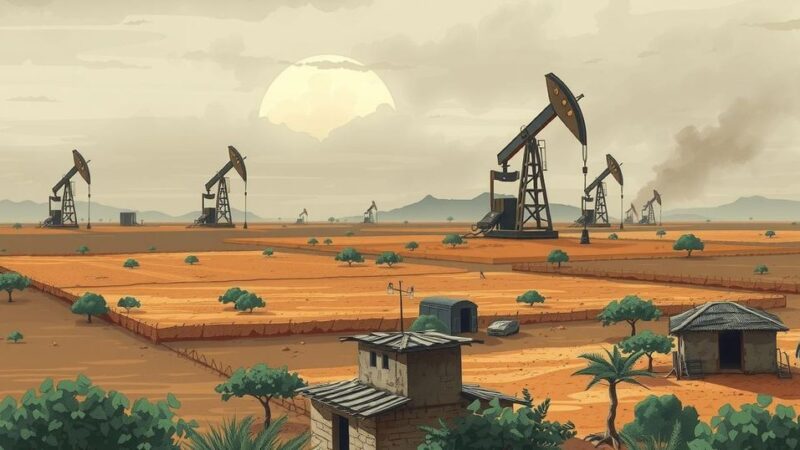Final negotiations on a treaty to curb plastic pollution have commenced in Busan, South Korea, revealing stark divisions among nations. Key issues include caps on production and solid waste management strategies, with differing perspectives primarily between high-ambition advocates and oil-producing states. Despite challenges, negotiators aim to reach consensus while balancing urgent environmental needs with national interests.
A pivotal meeting to finalize an international treaty aimed at addressing plastic pollution commenced in Busan, South Korea, amidst significant disparities among participating nations. The ongoing discussions come on the heels of the COP29 climate talks, concluding only hours earlier, which left many delegates dissatisfied with the commitments on climate financing for developing nations. During the opening remarks, Ecuadorian diplomat Luis Vayas Valdivieso emphasized the gravity of the situation, framing the conference as a crucial response to an existential environmental challenge.
The proliferation of plastic waste has reached alarming levels, with its presence detected in various ecosystems, including clouds and marine environments, alongside alarming impacts on human health. Despite the universal acknowledgment of plastic pollution as a dire issue, stark disagreements persist regarding effective remediation strategies. Central to the contention are proposals to limit plastic production, potential bans on hazardous chemicals, and the financing mechanisms necessary for treaty implementation.
Over the past two years, past negotiations have been troubled by conflicting interests, culminating in a lengthy draft treaty exceeding 70 pages. In an effort to streamline discussions, Valdivieso presented an alternative document, although several nations, notably Russia and India, expressed their opposition, indicating a lack of representation in his proposal. Eyad Aljubran, the head of the Saudi Arabian delegation, articulated concerns on behalf of the Arab group regarding equitable representation in treaty discussions.
The surge in global plastic production, reaching approximately 460 million tonnes in 2019, underscores the urgency of establishing a comprehensive framework. The High Ambition Coalition (HAC), comprising various nations, advocates for addressing the entire lifecycle of plastics, from production limits to effective waste management. In contrast, oil-producing nations aim to focus discussions solely on waste management. The HAC seeks binding global targets to curb plastic production and has cautioned against allowing vested interests to undermine treaty negotiations.
While initial agreements enabled discussions on Valdivieso’s refined framework, certain environmental organizations have raised alarms about the potential dilution of treaty terms amidst time constraints. Eirik Lindebjerg of WWF expressed a desire to see an ambitious agreement, questioning whether negotiators would prioritize significant advancements or yield to pressure for weaker compromises. The participation of the United States and China remains crucial, with uncertainties surrounding their alignment complicating the negotiation landscape.
Despite the rocky commencement, Inger Andersen of the UN Environment Programme advised stakeholders to remain patient, recalling the extensive timeframe it took to establish the Paris climate agreement. She posited that achieving set targets should not necessitate a lengthy deliberation period, emphasizing the need for immediate commitment to addressing plastic pollution.
Plastic pollution has emerged as one of the most pressing environmental issues globally, affecting marine ecosystems, terrestrial environments, and human health. With plastic waste widely infiltrating natural habitats and everyday life, there is an urgent call for global collaboration to mitigate its effects. The complexities of establishing an effective treaty stem from divergent interests among countries, particularly between industrialized nations and those dependent on fossil fuel economies. The ongoing treaty talks mark a critical juncture after years of preliminary discussions, with negotiators tasked with addressing the multifaceted challenges presented by plastic waste and its lifecycle.
In summary, the ongoing negotiations in Busan concerning the international treaty to combat plastic pollution reflect deep divisions among countries, highlighting conflicting priorities and approaches to addressing the issue. While the need for a comprehensive strategy has been recognized, significant hurdles remain in terms of consensus on production limits, financing avenues, and the overall scope of the treaty. As stakeholders continue discussions, the future of global plastic pollution management hinges on sustained collaboration and commitment to ambitious targets.
Original Source: www.seychellesnewsagency.com






